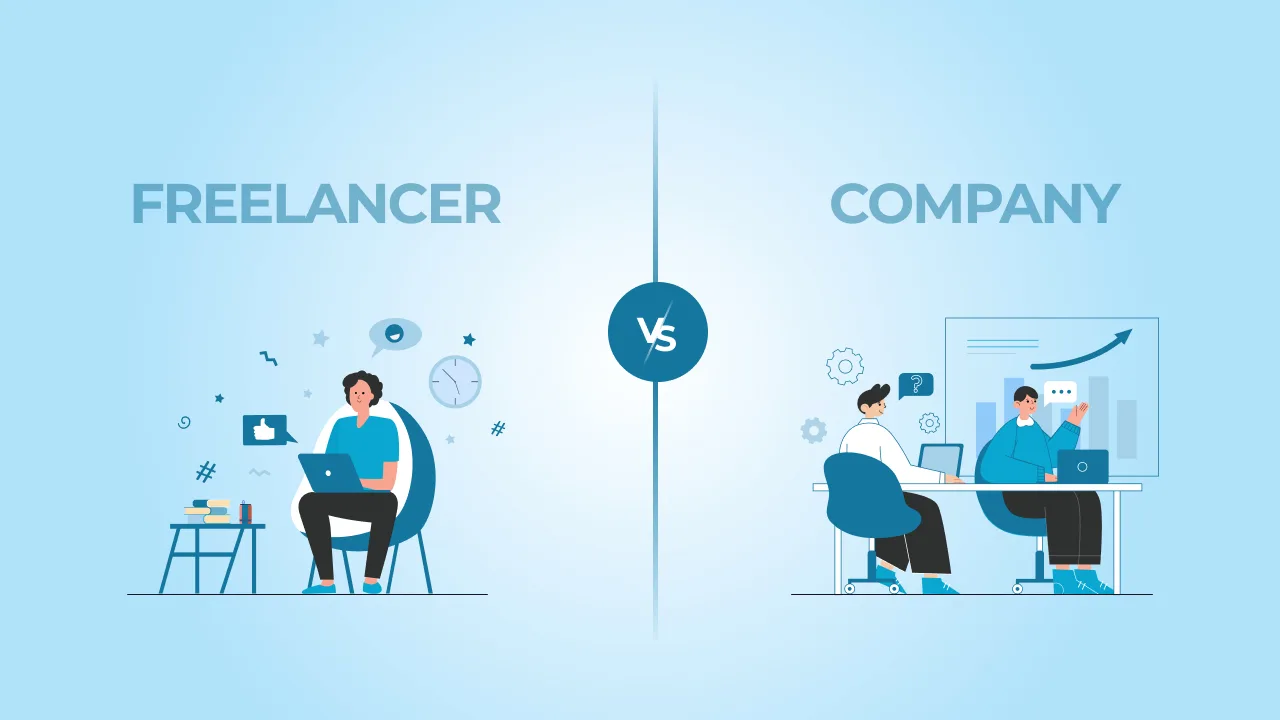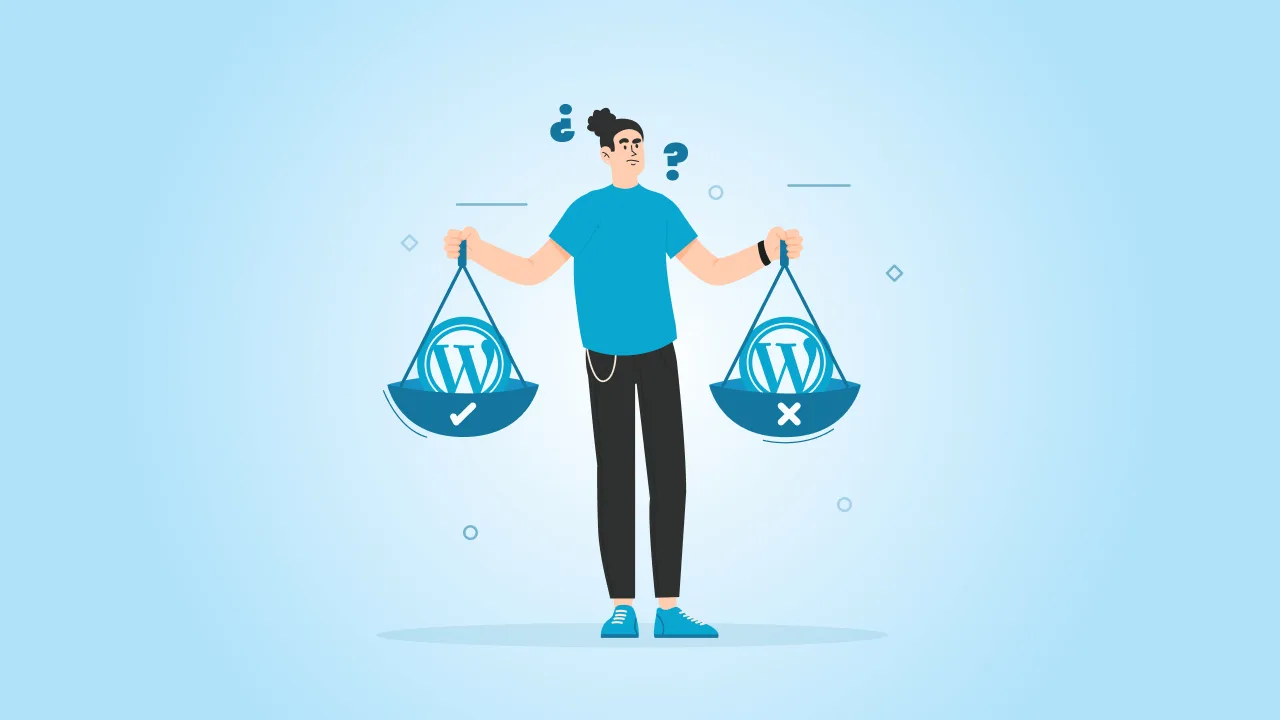WordPress has been a safe bet for building a website. However, it’s not the only best platform available in the market – other good options like Sitecore exist.
The challenge? You’re now unsure how to compare these two choices.
Fortunately, it’s easier to distinguish between WordPress VIP and Sitecore.
In this article, we have outlined a side-by-side comparison of these two platforms based on pricing, ease of use, user-friendliness, and more to help you decide which platform is better suited for you.
Let’s dig in.
WordPress VIP vs. Sitecore: An Overview
WordPress serves as the foundation for everything from blogs and brand websites to eCommerce stores and more. WordPress VIP is mostly suitable for large businesses with high-traffic websites and tens of millions of pageviews.
It is a powerful hosting plan designed specifically to handle high-traffic volume with unrivaled performance and security.
Sitecore also enjoys mainstream popularity, although its market share is smaller than WordPress’s.
Looking at the world’s top 10,000 websites by traffic, WordPress makes up nearly 35% of the market share while Sitecore accounts for less than 2%.
Sitecore was initially launched in 2001. It’s one of the earliest content management software products available, and it remains the legacy CMS for several large, enterprise organizations today.
Sitecore and WordPress are both highly customizable, but one of the biggest differences goes back to the open vs. closed debate: Sitecore is a proprietary CMS with a restricted code base while WordPress is built with open-source code.
Key Features of Sitecore and WordPress
Now that we understand the essential elements of Sitecore and WordPress, let’s delve into their unique features:
Sitecore
When it comes to creating personalized user experiences, Sitecore takes the lead.
It offers advanced personalization capabilities, allowing you to understand and segment your audience effectively, delivering content that resonates on an individual level. Dive into your customers’ preferences and behaviors to fine-tune your marketing efforts and hit just the right notes.
But there’s more to Sitecore than personalization. It excels in managing multilingual websites, making it effortless to produce and maintain content in multiple languages. Whether your audience is global or spans multiple countries, Sitecore ensures that creating inclusive content is straightforward and hassle-free.
Moreover, Sitecore is equipped with robust analytics and reporting tools. These features provide vital metrics such as traffic, conversion rates, and user engagement, helping you measure the success of your campaigns and make informed decisions to propel your digital strategies forward.
WordPress VIP
On the other hand, WordPress stands out for its flexibility and user-friendliness. Its extensive array of plugins offers functionalities for nearly every need, from e-commerce and SEO to social media integration.
This makes WordPress an ideal platform for businesses of all sizes, from solopreneurs to larger enterprises, allowing for a tailored online presence.
WordPress also shines in the realm of blogging. Its intuitive interface and powerful content management system simplify the process of publishing and managing posts. This makes it a favorite among content creators, who can use a variety of editing tools to produce compelling and visually appealing content that keeps readers coming back.
Ease of use is another hallmark of WordPress. Its straightforward, user-friendly approach means that even those without technical expertise can easily set up and manage their sites, contributing to its widespread popularity.
Lastly, WordPress offers an extensive selection of customizable themes, which allow you to create a visually stunning website with minimal design effort. These themes provide a foundation for anyone to build a professional-looking web presence.
Sitecore vs. WordPress VIP: a side-by-side comparison

Now that we’ve covered a general overview of each platform, let’s dig deeper into WordPress.com and Sitecore. We have compared both platforms based on certain strengths that are essential in choosing a website-building platform, such as:
- User management
- Multichannel scalability
- Multilingual content capacity
- Flexible navigation structure
- Marketing tools and SEO
- Dashboard and reports
- Flexibility
- Security
- Pricing
1. User management: Sitecore vs WordPress VIP
Effective user management for content management system (CMS), ensures that only authorized personnel can access or modify sensitive content.
With your organization’s growing need, you’ll require a CMS with adaptable user management features. Sitecore comes with a role-based user management system where an authorized administrator can define roles and associated permissions.
This function ensures that only authorized personnel can have access to your sensitive information.
Similarly, WordPress allows six predefined user roles—administrator, editor, author, contributor, subscriber, and super admin.
Each role can be customized to suit your specific organizational needs. It not only helps to prevent role conflicts but also ensures that tasks are delineated.
2. Multichannel scalability: Sitecore vs WordPress VIP
Utilizing a headless CMS can facilitate content delivery efficiently across these multiple touchpoints.
If your organization aims to connect with clients digitally, emphasizing multichannel scalability is crucial. Some CMS platforms enable organizations to deliver a consistent message across multiple channels effectively.
Sitecore, for instance, excels in adapting content for mobile devices—a critical feature as mobile usage continues to rise, enhancing both user experience and reach.
WordPress is also recognized for its scalability; it supports extensive content additions without sacrificing quality and allows for custom feature development to meet evolving demands.
3. Multilingual content capacity: Sitecore vs WordPress VIP
As businesses expand into international markets, multilingual content support becomes incremental. CMS platforms like Sitecore offer multilingual capabilities, allowing users to create and manage content in multiple languages, ensuring messages are localized and resonate with diverse audiences.
WordPress VIP, the enterprise version of WordPress, also supports multilingual functionality.
It automatically redirects your users to the preferred language version based on their location or allows users to select their preferred language manually. Great, right?
There are two general approaches to creating a multilingual website:
- Manual Translation: Translate content by human translators to ensure high quality and accuracy.
- Machine Translation: Automatically translate content using machine translation services. This is a good way to cut costs, but it may lack accuracy.
While machine translation offers convenience and saves costs, the best practice for reaching global audiences effectively is to rely on professional translators to ensure consistent content quality across all language versions.
4. Integration flexibility: Sitecore vs WordPress VIP
The ability for a content management system to play nice with other platforms is table stakes. A top-rated CMS needs to integrate seamlessly with CRM systems, marketing automation, analytics tools, and more.
Having integration flexibility empowers you to get the most out of your existing tech investments. By breaking down silos and facilitating cross-platform data sharing, you can easily streamline workflows and gain a unified view of customer touchpoints.
This holistic visibility gives you a cohesive, personalized experience across all the channels.
Sitecore leads the pack in integration prowess. Its out-of-the-box connectors allow plug-and-play integration with a wide range of third-party tools.
WordPress VIP also connects various tools, services, or platforms with your website to enhance its functionality without the need for extensive coding knowledge.
5. Marketing tools & SEO: Sitecore vs WordPress
These days, a solid website marketing plan has to include SEO (search engine optimization). So a platform with built-in SEO tools can really boost your marketing efforts by helping you optimize page titles, meta descriptions, URLs, image tags, and more.
And when the platform doesn’t offer something, it should let you integrate third-party tools for social media, analytics, marketing automation, and so on.
Sitecore is a true marketing powerhouse. It comes packed with superior features like content personalization to improve user experience and drive more conversions. You also get tools for testing, e-commerce, email marketing, and more.
The latest Sitecore 9 adds even more marketing muscle, including machine learning and marketing automation.
WordPress VIP empowers omnichannel marketing. When it comes to content management, the WordPress VIP team prioritizes enabling you to create more content to grow your business.
Their agile platform emphasizes the user-friendly and flexible Gutenberg editor. Additionally, WordPress VIP plans also include analytics insights to monitor your content’s performance.
You can also segment your audience using customizable filters and logic.
6. Dashboard and reports: Sitecore vs WordPress VIP
A CMS is no longer just a content management tool. With built-in analytics muscle, it helps you make data-driven decisions and equips you with a strategic growth engine for staying one step ahead of the competition.
For companies looking to turn insights into impact, a CMS needs to bring its A-game in analytics and reporting.
Enterprise-grade platforms like WordPress VIP come with in-built analytics with flexible filtering, custom logic, and multi-dimensional audience segmentation.
This equips you to gain a granular understanding of how different user segments engage with your website and web content.
Those insights can then be surgically applied to improve customer journeys, elevate user experiences, and accelerate desired actions like email list sign-ups and ecommerce purchases.
With Sitecore’s experience analytics, you can not only measure the quantity with traditional analytics but also measure the quality of your customer’s interactions.
By combining the two and exploring the relationship between them, you get a deeper understanding of your customer’s entire experience with your brand.
7. Flexibility: Sitecore vs. WordPress
When we talk about flexibility, we mean how much control the platform gives you over managing and customizing your website. The admin side is about making it easy for your team to access and work on the site. The customization piece is all about design freedom.
Both Sitecore and WordPress have great workflow tools. But Sitecore takes it to another level with its advanced and intuitive system. It creates a hierarchy of users and permissions, so team members can make changes while managers review and approve content before it goes live. You can even trace site updates back to who made them.
If you want a ready-to-go solution, Sitecore offers the Sitecore Experience Accelerator (SXA).
This feature lets teams work together by reusing templates, layouts, and components across multiple sites. It speeds things up because everyone can dive in once a basic user experience plan is set.
For custom solutions, you’ll need to do some custom development work. If you want to run Sitecore on Microsoft Azure’s cloud, you’ll likely need a small tech team to help with the launch and ongoing maintenance.
WordPress, on the other hand, is easier to use and lets you get up and running faster. That’s thanks to its ready-made themes and cloud hosting options.
However, most themes still need some customization to match your branding and website goals for converting visitors into customers.
As a general rule, Sitecore is ideal if your business wants a fully custom solution and has the team to build it. WordPress works well if you need something simple that doesn’t require too much technical heavy lifting.
8. Security : Sitecore vs WordPress
When it comes to security, Sitecore and WordPress take different approaches. Sitecore’s architecture is built using Microsoft’s .NET Framework, which is backed by a community of top-notch developers.
This makes Sitecore known for being stable and reliable. Its architecture allows websites to handle sudden spikes in traffic and scale up smoothly. Plus, this scalability makes it easy to adapt websites for multiple countries and languages.
Sitecore comes packed with valuable security features built right in. This means you won’t have to worry about vulnerabilities that could come from using third-party add-ons.
The platform also offers built-in security tools to keep your database safe and secure. These are the kinds of precautions that all businesses need to take to protect themselves.
WordPress VIP, on the other hand, works well for larger businesses with large numbers of traffic and pages.
WordPress VIP prioritizes security and performance. It includes a built-in global CDN, an SSL certificate, anti-spam features, asset optimization, and 24/7 monitoring and scanning for malware prevention, including scanning third-party plugins and custom code to prevent DDoS security breaches.
9. The Cost Factor: Sitecore vs WordPress
When investing in a CMS, cost heavily determines your decision.
WordPress’s open-source nature makes it flexible, but its enterprise offerings like VIP come with a premium price tag fit for enterprise-level, high-traffic websites with hundreds of pages.
VIP plans span $5,000 to $25,000 per month, plus setup fees per site.
But you get unlimited storage, bandwidth, CDN, and white-glove support – essentials for keeping mission-critical sites humming.
On the other hand, enterprise-grade platforms like Sitecore require heftier upfront licensing from around $48,000, plus recurring annual maintenance fees. This may come off as super expensive compared to WordPress VIP.
But that’s not all. For larger organizations building sophisticated websites with highly customized experiences, Sitecore’s richly featured, robustly supported solution can provide long-term ROI that makes the bigger buy-in worthwhile.
Choosing the Right Fit: Sitecore vs WordPress

When picking a content management system (CMS), the WordPress VIP vs. Sitecore comparison boils down to your specific needs, growth plans, and the long game you want to play.
The features should directly connect to your specific goals. If a platform doesn’t tick those boxes, keep exploring – there are so many solutions out there built for even the most niche requirements, Weigh the capabilities each affords against the realities of your budget and roadmap.
Sitecore and WordPress are two of the biggest, most robust CMS tools around. However, they’re fundamentally quite different. Hopefully, this article helped you decide which platform to pick based on your unique needs.
If you need support with developing your WordPress site, cmsMinds can be your go-to choice.





